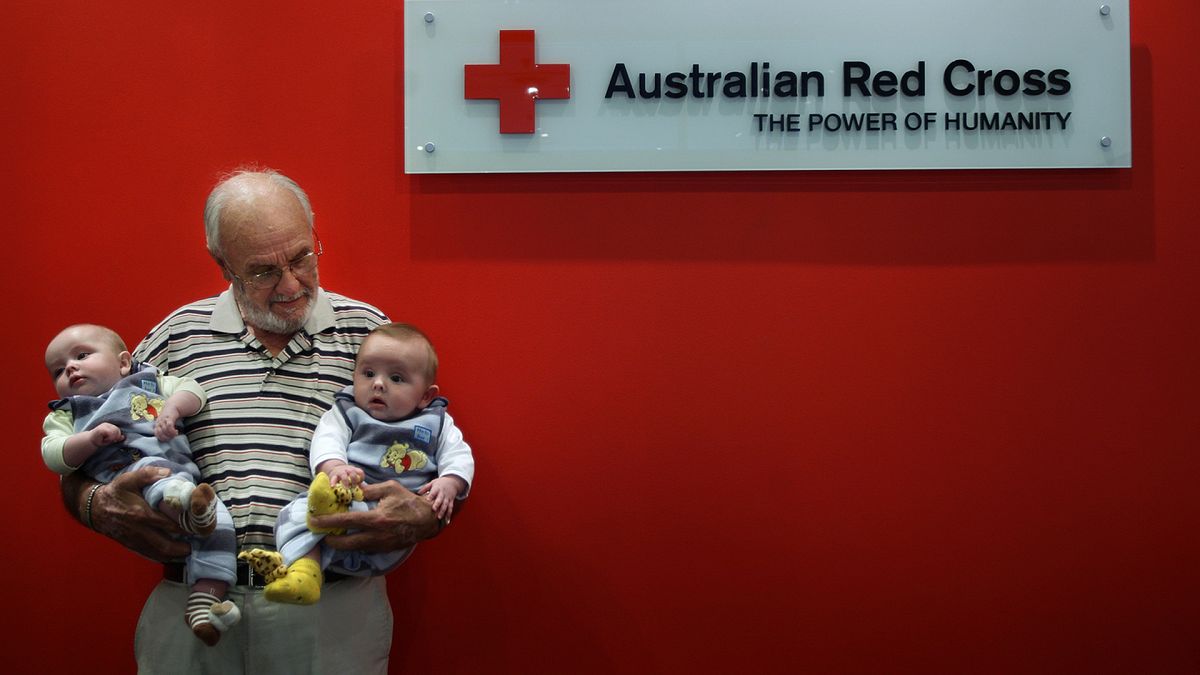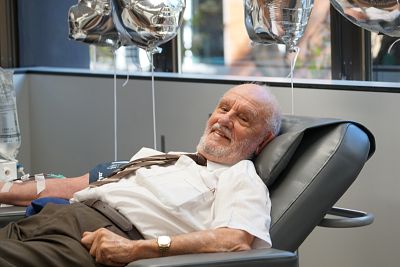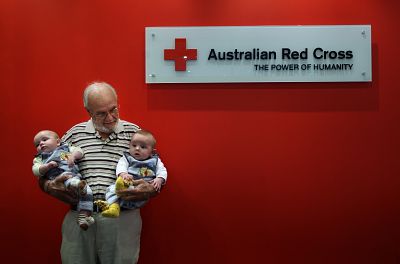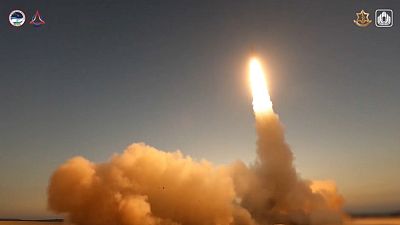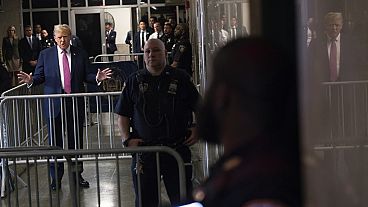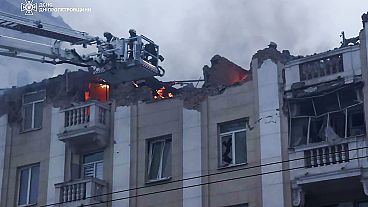James Harrison had to stop donating blood at the age of 81, after 1,173 donations of plasma that saved millions because of his rare type.
James Harrison has two biological grandkids — and an estimated 2.4 million unofficial godchildren.
Last Friday, the Australian man gave his 1,173rd and final blood donation — a practice the 81-year-old has done for the past six decades — having reached the legally mandated cutoff age for giving blood in his country.
But every drop he gave went to a good cause: Harrison's plasma contains a rare antibody that goes into Anti-D, a life-saving medication used to protect unborn babies from a potentially deadly blood incompatibly with their pregnant mothers.
To celebrate the milestone at the Sydney blood donation center where Harrison offered his right arm up for the last time, the Australian Red Cross brought in half a dozen mothers and the babies who'd received his donations.
"They thanked me for the fact that they had healthy babies that made me feel tingly inside," Harrison told TODAY by phone from his home. "It gives you goosebumps, but it was sad in a way, because it was the end of an era.
"I'd rather keep doing it, but I was told I had to get out when I turned 81."
His selfless legacy has earned him the nickname "The Man With the Golden Arm" — since the Australian Red Cross calculated his selflessness saved 2.4 million babies over the years.
While he insists "it's all just numbers to him," at least one of those success stories hits home. "My own daughter had to have an injection as well," said Harrison. "My grandson is now 23 on Monday."
His 63 years of service is made even more incredible by his hatred of needles.
"I never once watched the needle go in my arm," said Harrison.
Anti-D is used to treat Rhesus D Haemolytic Disease (HDN), a conditon found in women who have Rh negative blood type but are carrying a baby with Rh positive blood, which sends the mother's red blood cells to attack the fetus as a foreign body. HDN can lead to miscarriage, stillbirths or brain damage and early death in a newborn.
And since the first Australian mother received her first treatment of Anti-D at Royal Prince Alfred Hospital in 1967, Harrison's plasma has been used in every dose, according to the Sydney Morning Herald.
"The Red Cross Blood Service can never thank James enough for protecting our nation's babies, it's unlikely we will ever see such dedication and generosity in a donor again," a rep for the Red Cross Blood Service said in a statement.
Harrison started donating as soon as he legally could, at the age of 18, five years after his own life was saved by blood donations during heart surgery.
"My life was saved by blood donation that's why I became a donor myself," said Harrison.
Now it's up to others.
"I just hope that (my story inspires) more people become blood donors," said Harrison. "Get out there roll up your sleeves, put in a needle in your arm and save someone's life."
